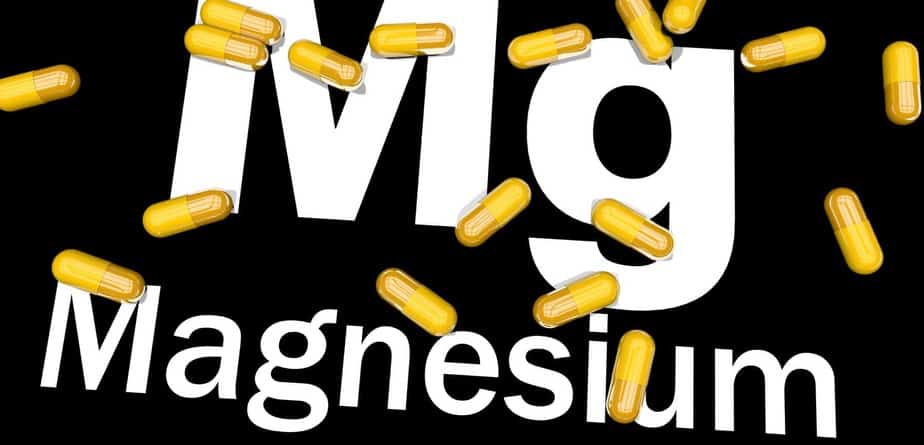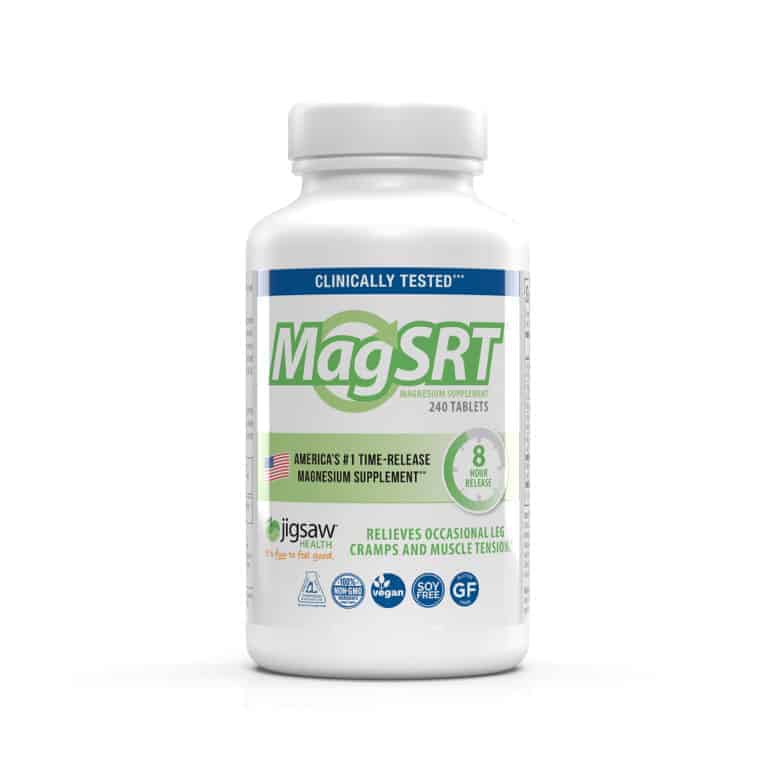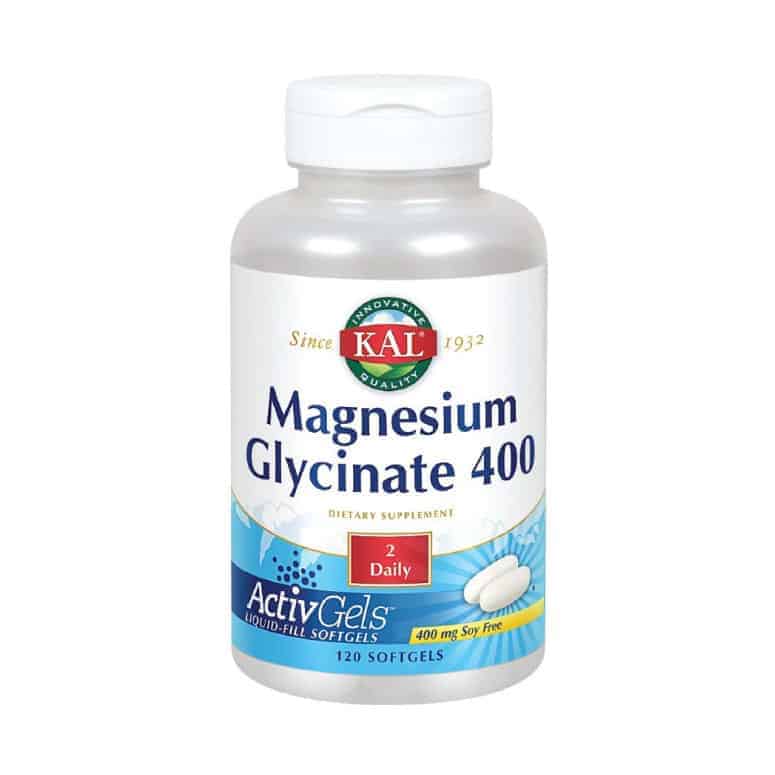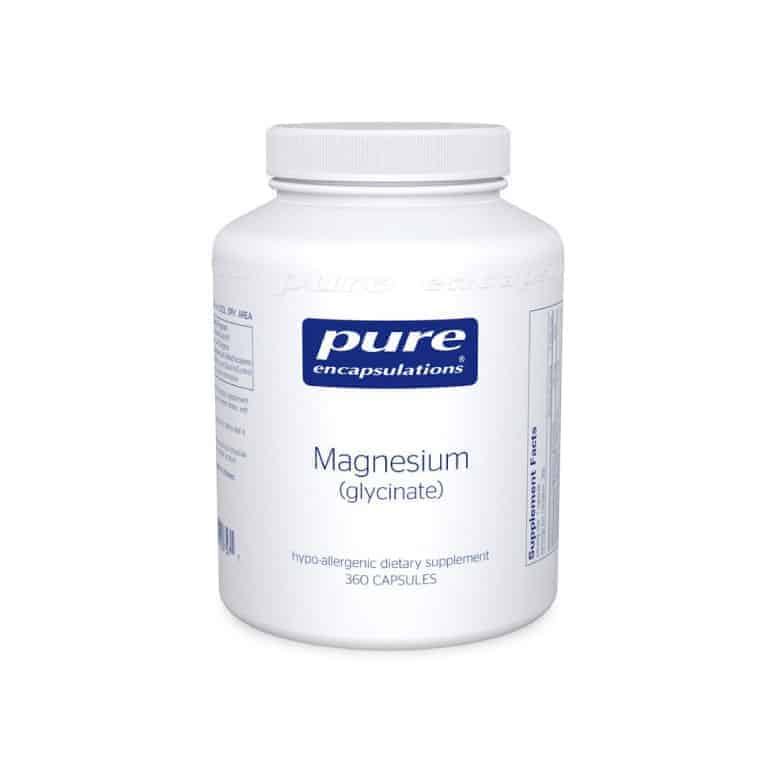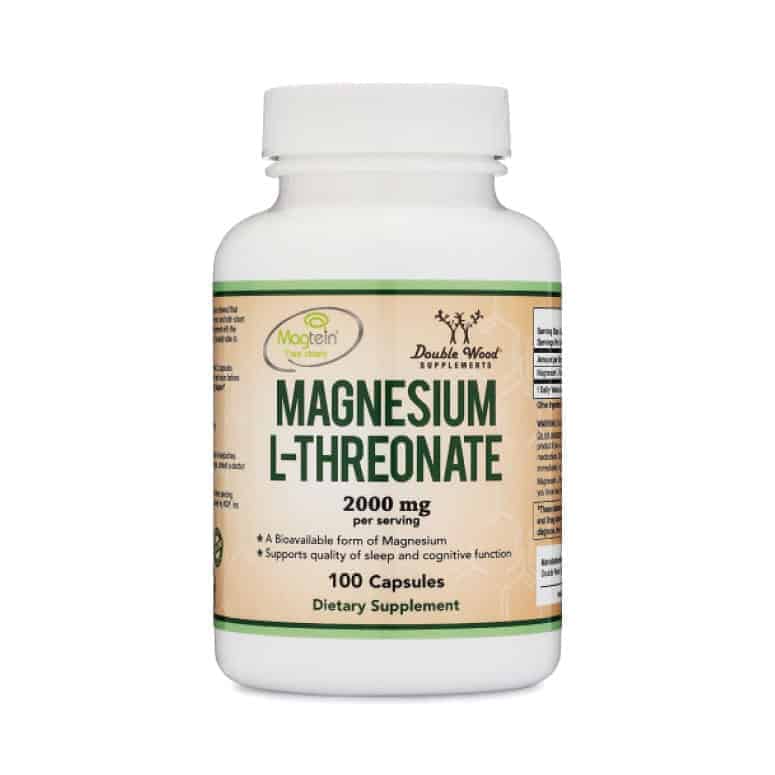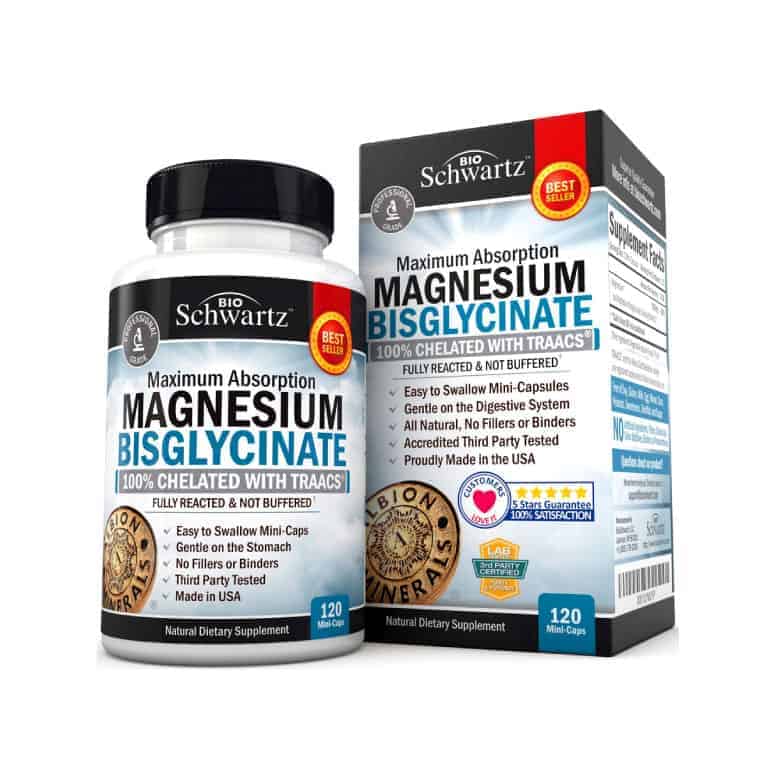Magnesium is among the most abundant minerals found in nature and the human body. It is an essential micronutrient, meaning we are required to consume magnesium regularly for proper health and biological function.
In fact, magnesium is a requisite co-factor (or “assisting molecule”) for over 300 biochemical reactions. What does this mean?
Well, it means that magnesium is incredibly important to many different bodily functions related to your health and well-being.
But you may be asking yourself questions like:
Do you really need to supplement magnesium?
How much do you take?
How do you find the best magnesium supplements?
Key Point: In this ranking, we answer these questions and more. Then we walk you through our selections for the best magnesium supplement on the market.
Table of Contents
- Magnesium Deficiency in Americans
- Why Take a Magnesium Supplement?
- What Are Magnesium Supplements?
- The Best Forms of Magnesium
- Benefits of Magnesium Supplements
- Symptoms of Magnesium Deficiency
- Methodology of Magnesium Supplement Reviews
- FAQs and Related Articles
Magnesium Deficiency in Americans

Despite magnesium’s ubiquity on Earth and in our food supply (encased in the center of the chlorophyll molecule), it remains a dietary oversight by much of the population. It’s estimated that upwards of 50% of Americans do not consume enough magnesium.
Though, the prevalence of magnesium deficiency is somewhat unclear, mainly due to a lack of large-scale serum magnesium data.
In 1990, a survey of 1033 serum electrolyte panels from an urban primary care hospital in the U.S. showed that 47% of the patients had hypomagnesemia (clinical magnesium deficiency). Curiously, only 10% of these cases were tested specifically because a physician suspected a magnesium imbalance.
Contemporary studies suggest that anywhere from 1.7% to 37.7% of the population have magnesium deficiency, with a slightly higher prevalence of hypomagnesaemia in women than men.
Bottom Line: Intuitively, not having enough magnesium in the body leads to health consequences, especially if you don’t take measures to correct the problem.
Why Take a Magnesium Supplement?
In late October 2014, an article published in the Wall Street Journal’s op-ed pages lamented the the unsung heroics of what is rapidly becoming everyone’s choice mineral supplement: magnesium.
Coincidentally, magnesium supplements have been booming ever since. Perhaps people are finally giving magnesium the attention and praise it deserves after neglecting it for decades.
The plight consumers face is that there are hundreds, if not thousands, of magnesium supplements available nowadays. This can make for quite a headache trying to navigate and discern which are the best magnesium supplements.
As fortune would have it, you stumbled upon this review guide of the best magnesium supplements. I’ll get you up to speed on all things related to magnesium supplements and the best forms of magnesium to take.
With that in mind, here are RAVE’s category winners for the best magnesium supplements (also check out our list of the overall best supplements and best creatine supplements):
The Magnesium Supplements We RAVE About
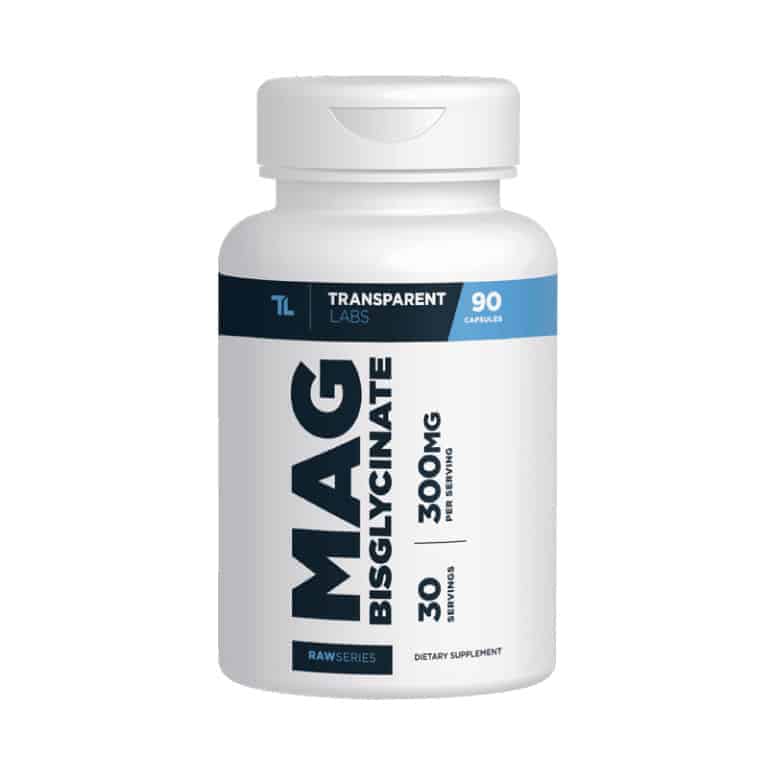
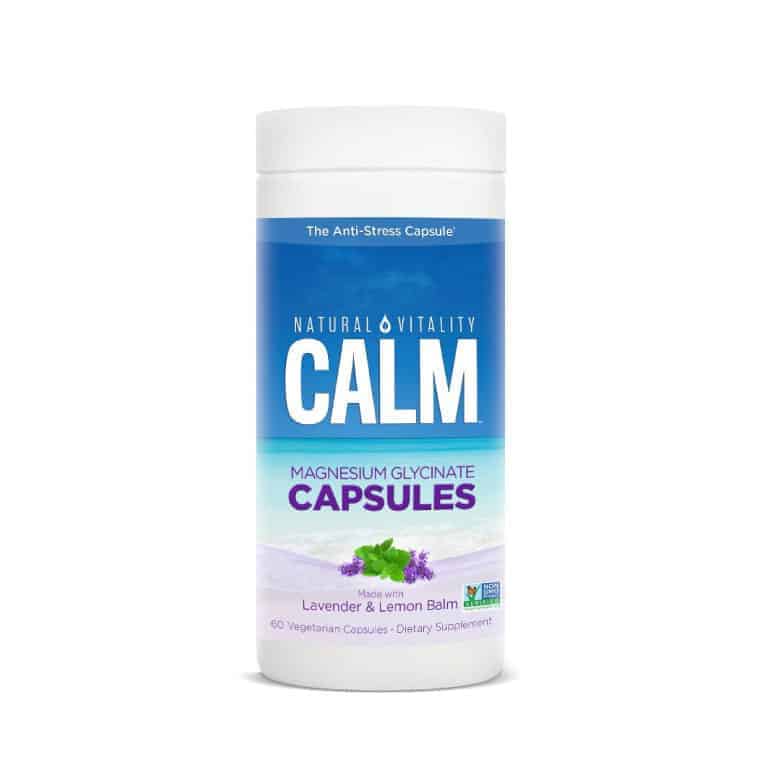
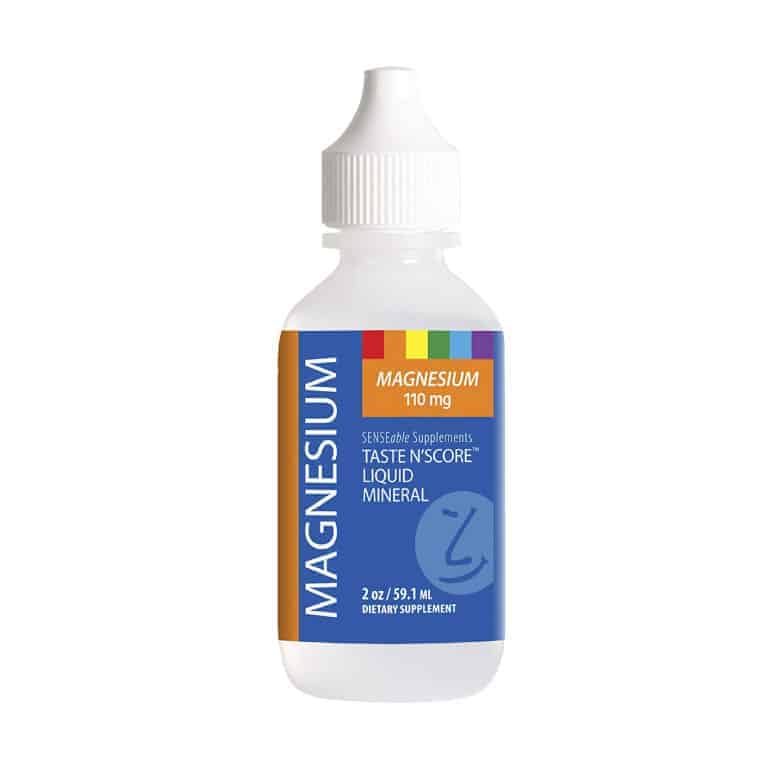
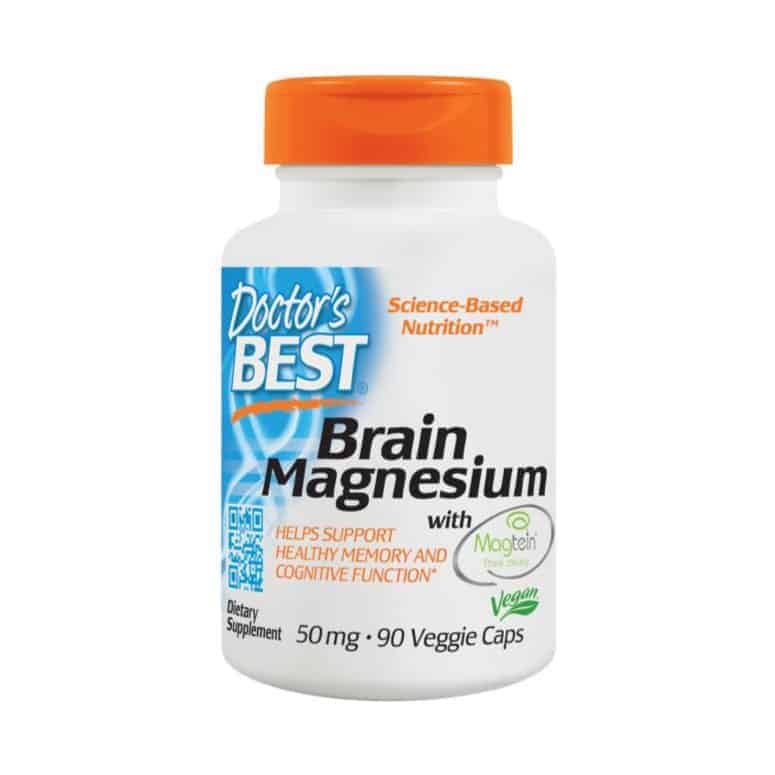
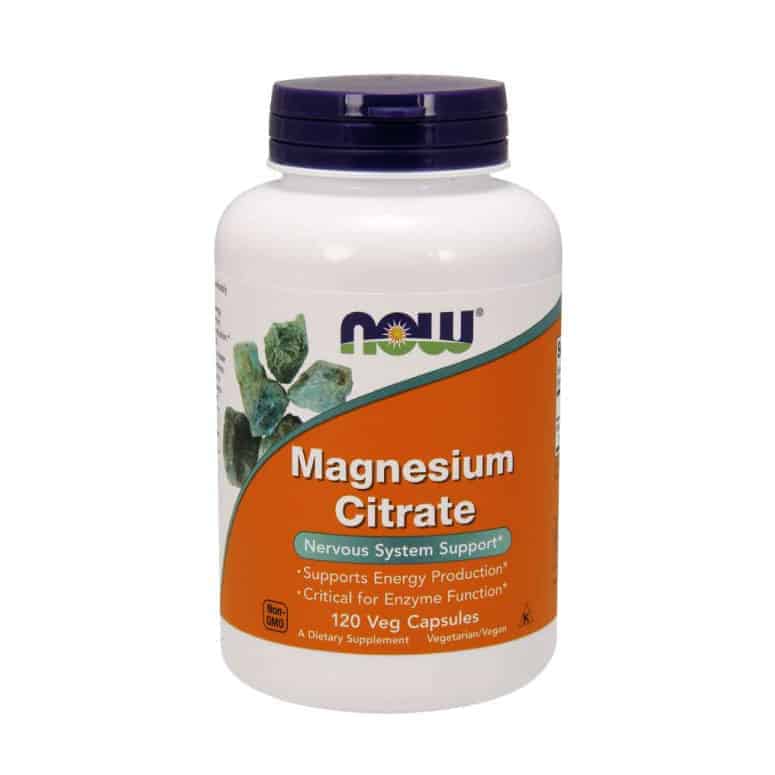
What Are Magnesium Supplements?

Magnesium supplements are simply dietary supplements that provide magnesium.
However, many magnesium supplements come with different forms of magnesium (which we discuss further below) and other micronutrients, such as zinc and B vitamins.
Since magnesium is a mineral, it’s classified as an essential micronutrient in the human diet. This means we have to consume magnesium because the human body doesn’t produce it endogenously, just like other vitamins and minerals.
However, the reason magnesium (and other minerals) are called “micronutrients” is not because of their small chemical structure, but because we only require a relatively small amount for proper health.
As an example, the average adult typically consumes hundreds of grams of macronutrients per day. Contrast that with the recommended daily intake (RDI) of magnesium, which is roughly 350 milligrams for adults—about one-third of 1 gram.
Bottom Line: Mathematically, we require exponentially more macronutrients than we do micronutrients, hence the prefixes “macro-” and “micro-” used to classify them.
The Importance of Electrolytes and Micronutrients
This is ostensibly why many people overlook the importance of micronutrients, but don’t let the relatively small dietary requirements of these nutrients fool you. Vitamins and minerals like magnesium are just as essential to our health and well-being as macronutrients.
In fact, micronutrients allow our bodies to actually use macronutrients. Without enough micronutrients in your diet, lipids, proteins, and carbohydrates aren’t able to carry out their basic biological functions.
Moreover, magnesium is one of the key electrolytes in the body. Electrolytes are substances that carry electrical currents throughout the body, maintaining gradients across cell membranes and regulating fluid balance.
This is why you’ll often find magnesium in sports beverages and electrolyte supplements, along with other electrolytes such as potassium, sodium, chloride, and phosphorus.
The Best Forms of Magnesium

Since many people have a tough time meeting the RDI of magnesium through diet/food sources, magnesium supplements can come in handy.
The amount, form, and potency of the best magnesium supplements depend on the desired effects you want and conditions you wish to treat.
Many magnesium supplements seem great in terms of affordability, but chances are they are formulated with an inferior form of the mineral, such as magnesium oxide or magnesium chloride, rendering them virtually worthless.
In fact, magnesium oxide has a bioavailability of roughly 4%, making it impractical and, for all intents and purposes, a waste of money.
So, which forms of magnesium are best, you ask?
According to the plethora of studies I’ve come across, organic forms of magnesium are far more bioavailable than inorganic forms.
Organic magnesium means it’s complexed and reacted with a carbon-containing (i.e. organic) molecule, such as an amino acid or citric acid.
These forms are typically better absorbed in the upper GI tract, making them gentle on the stomach in modest doses:
- Chelated Magnesium (magnesium bound to amino acids, such as L-glycine and L-threonine)
- Magnesium Orotate/Taurate/Malate (suggested to be the most bioavailable salt forms of magnesium available)
- Magnesium Citrate (high doses of this form have a laxative effect)
Clarifying Magnesium Dosage
Be aware that the amount of elemental magnesium a supplement provides is often not the same as the dose of magnesium ingredient(s).
For example, magnesium citrate—which is usually a 1:1 ratio of citric acid and magnesium—only provides about 11% elemental magnesium by weight.
Therefore, a supplement that provides 100 milligrams of magnesium citrate per serving only gives you roughly 11 milligrams of magnesium (and 89 milligrams of citric acid).
Chelated forms of magnesium typically provide between 10% and 25% of their weight as elemental magnesium. It’s important to take this into account when you’re using a magnesium supplement.
Bottom Line: When shopping for magnesium supplements, be sure to factor in the amount of elemental magnesium in order to determine accurate magnesium dosage information.
Benefits of Magnesium Supplements

Magnesium is an essential mineral found in abundance throughout the cosmos, and the third most plentiful element found in seawater after chlorine and sodium.
In fact, every cubic mile of seawater contains roughly 12 billion pounds of magnesium.
For us humans, magnesium is the 11th most abundant element in the body, with about 60% of it present in bone tissue. Naturally, magnesium is integral to healthy bone structure.
But magnesium does much more than protect our bones, since it serves as a cofactor for hundreds of enzymes in the body.
The Role of Magnesium in the Body
Magnesium plays a role in over 300 enzymatic reactions in the body, many of which are necessary for the following:
- Proper neurotransmitter synthesis
- Nerve impulse transmission
- Muscle contraction
- Protein synthesis
- Immunity
- Glucose metabolism
- Gastrointestinal function and gut motility
- Hormone balance
Furthermore, magnesium is a potent antioxidant and has a promising role as a natural treatment for mood disorders, particularly generalized anxiety disorder (GAD) and depression.
In layman’s terms, magnesium is an essential micronutrient because it’s a bonafide “helper molecule” for a multitude of biological processes.
Short and sweet, the benefits of magnesium supplements include:
- Promoting calmness and alleviates stress
- Helping maintain regularity and gastrointestinal function
- Supporting the immune system and reducing inflammation
- Enhancing hydration and reducing the risk of muscle cramps
- Boosting cognitive function and mental performance
Bottom Line: The extensive list of health benefits linked to proper magnesium intake make supplementation of magnesium a popular option for many individuals.
How Magnesium Promotes Good Sleep
Magnesium supplementation also plays a vital role in achieving good sleep quality.
Magnesium promotes good sleep through multi-dimensional interactions:
- Increase serotonin, which in turn increases melatonin production (regulates sleep)
- Promotes relaxation of muscles (great for those with restless legs)
- Decreases adrenaline
For a quick breakdown of more ways that magnesium promotes good sleep, check out Dr. Berg’s helpful video:
Symptoms of Magnesium Deficiency
The acute symptoms of magnesium deficiency are palpable for most people. They tend to include muscle cramps, dehydration, constipation, feeling anxious and mentally foggy, and lethargy.
In many cases, taking a bioavailable form of magnesium as a dietary supplement can help restore healthy magnesium status fairly quickly, alleviating the symptoms of magnesium deficiency.
Still, many people wonder if they should take a magnesium supplement.
Well, ideally you would focus on getting more magnesium in your diet through whole foods and liquids. Then there’s the obvious, that a healthy diet and regular exercise are critical if you want to feel and function your best.
But telling people to just eat more magnesium-rich foods isn’t always the answer either.

While magnesium is found in a variety of plant foods, notably leafy vegetables, legumes, and nuts, recent research suggests that the magnesium content of these foods is declining at an alarming rate.
Taking into consideration that the typical Western diet is generally lacking in plant-based foods, it’s likely that magnesium deficiency is more common now than it ever has been, especially in the U.S.
Some researchers have even gone so far as to declare magnesium deficiency, whether clinically diagnosed or not, a public health crisis that can lead to a myriad of diseases in the long run. Needless to say, we should be most concerned about the long-term ramifications of not ingesting adequate amounts of magnesium.
Magnesium deficiency, even at the subclinical level, is associated with an increased risk of metabolic syndrome, chronic oxidative stress, heart disease, endothelial dysfunction, mental health disorders, and many other debilitating conditions.
Taking a magnesium supplement is generally a sensible choice from a health standpoint, especially if you don’t consume plenty of magnesium-rich foods.
Methodology of Magnesium Supplement Reviews
Magnesium supplements are a dime a dozen these days, with every brand putting a twist on their own formula that claims to be better than the competition.
If there’s anything I’ve learned over the last decade of writing about supplements (and using them regularly), it’s that talk is cheap.
So yes, poorly formulated magnesium supplements are abundant. This comes with the territory of any supplement niche. The upside is that there’s an equally plentiful selection of high-quality magnesium supplements available, especially online.
The easiest way for companies to cut corners and increase margins is to label dress their magnesium supplement with cheap, inorganic forms of magnesium, notably magnesium oxide and magnesium chloride.
Given the overwhelming evidence that organic forms of magnesium are much more bioavailable than inorganic forms, it’s in your best interest to spend a little extra for a quality magnesium supplement.
After all, what good is a supplement if your body can’t absorb the ingredients?
Ranking Criteria
As such, my review methodology to determine the best magnesium supplements largely focused on the forms of magnesium, dosages, ingredient quality, and cost (value).
Like any supplement, you can never judge magnesium products by their cover. Flashy packaging and a sexy label design only go so far. What’s inside the bottle is what counts toward your health and well-being.
On that note, here are the methodology and criteria I used to rank the top magnesium supplements:
- Forms of magnesium included (bioavailability)
- Dosages
- Additional ingredients, if applicable
- Ingredient quality (non-GMO, kosher, vegan, etc.)
- Value (cost per serving)
The Best Magnesium Supplements
Jigsaw Health MagSRT
MagSRT by Jigsaw Health stands out as the best magnesium supplement you will find anywhere. By utilizing Albion’s premier patented dimagnesium malate combined with an array of B vitamin cofactors, MagSRT delivers highly bioavailable magnesium in sustained-release tablets that slowly absorb over the course of 8 hours (the “SRT” stands for sustained-release technology).
Arguably the most compelling trait of MagSRT is that it has been put to the test in a peer-reviewed clinical study and shown to increase both serum and red blood cell magnesium levels by an average of 22% and 30%, respectively.
Furthermore, this study found that magnesium levels remained significantly elevated for at least 8 hours in people given a half-dose of MagSRT, whereas those given a placebo had no significant variation in magnesium status at any time point. As a result, participants given MagSRT reported drastic reductions in symptoms of magnesium deficiency throughout the 90-day trial period.
A major advantage of MagSRT is that it overcomes the “magnesium dump” you may experience when you take another magnesium supplement. This helps mitigate potential gastrointestinal discomfort associated with taking sufficiently large doses of magnesium.
You’re probably thinking, “That’s all fine and dandy, but how much does it cost?”
Surprisingly, MagSRT isn’t crazy expensive when you consider the punch it packs. It’s not the most affordable magnesium supplement out there, but it is one of the best values you’ll find at around $23 for a 30-day supply.
And hey, JigSaw Health even offers a 90-day, money-back guarantee if it falls short of your expectations. Give it a shot if you’re on the prowl for the best magnesium supplement; you have nothing to lose and everything to gain.
Pros
- Sustained-release
- Contains Quatrefolic
- Contains vitamins B12 and B6
- Vegan-friendly and non-GMO
Cons
- A little pricey
Transparent Labs Mag Bisglycinate
Transparent Labs is one of the supplement industry’s most reputable brands, offering an extensive range of pre-workouts, protein powders, and fat burners with completely transparent labels. They have now expanded beyond the sports supplement niche with their Raw Series, which is where Mag Bisglycinate comes into play.
Frankly, you’ll be hard-pressed to find a better value for a pure magnesium bisglycinate supplement than this one, which only runs $17 for a 30-serving supply.
Every serving provides 300 milligrams of magnesium bisglycinate chelate, which is roughly 75-80 milligrams of elemental magnesium. And since magnesium bisglycinate is gentle on the stomach compared to other forms of magnesium, you won’t have to worry about running for the toilet shortly after taking this supplement.
I’d also like to draw attention to Transparent Labs’ commitment to transparency. This industry lacks regulations and standards by any major governing body, leaving it up to you to decipher which supplement brands are truthful about what goes into their products.
Obviously, that’s a huge onus to put on anybody, so Transparent Labs takes a load off your shoulders by openly stating every last detail about the contents of their supplements.
Even better, Transparent Labs offers stack and save options where you can snag two or three bottles of Mag Bisglycinate for $15.50 or $14.33 per bottle, respectively. For a bread-and-butter magnesium supplement, that’s about as good as it gets.
Pros
- Excellent value
- Hypoallergenic
- Non-GMO ingredients
- Third-party tested for purity
Cons
- Unclear if vegan-friendly
KAL Magnesium Glycinate 400 ActivGels
You may recognize the KAL brand for their natural sugar substitutes, like KAL Pure Stevia and KAL Monk Fruit. But what many people don’t know is that KAL is one of the oldest—if not the oldest—supplement lines across the globe. In fact, KAL was founded all the way back in 1932.
Being the quintessential grandfather of the dietary supplement industry, KAL has an established track record for creating quality products. Their innovative Magnesium Glycinate 400 follows suit and is one of the best magnesium supplements you can find.
Not only does this magnesium supplement provide a hefty 400 milligrams of superior magnesium glycinate, but it comes in easy-to-swallow and rapidly assimilated ActivGels made with rice bran oil and other hypoallergenic, non-GMO ingredients.
At just a shade over $23 for a 60-serving bottle, KAL Magnesium Glycinate 400 leads the pack in affordability without sacrificing quality. It’s perplexing to think that KAL was offering dietary supplements to the American general public in the early 20th century. They even pioneered the first-ever “multiple supplement” (i.e. multivitamin).
Fast forward to today and KAL has a portfolio of hundreds of products across the health and wellness niche. Heck, you’ve probably used KAL products before, given their abundance. Rest assured, you can invest in Magnesium Glycinate 400 with confidence.
Pros
- Bioavailable magnesium
- Hypoallergenic and non-GMO
- Vegan-friendly
Cons
- Pricey
Doctor’s Best Brain Magnesium
Doctor’s Best is no stranger to the supplement game. In fact, the company was founded nearly 30 years ago by a team of physicians, hence the moniker. This brand now offers over 200 products made almost entirely with trademarked, well-researched ingredients.
Sure enough, their Brain Magnesium supplement ranks right up there with the best of ‘em by providing Magtein magnesium L-threonate, a chelated form of magnesium that readily crosses the blood-brain barrier.
Magnesium is demonstrably effective for supporting brain health and treating mood disorders. But not all forms of magnesium can effectively traverse the blood-brain barrier like magnesium L-threonate does. In layman’s terms, Brain Magnesium contains the best form of magnesium to target cognitive function, mood, and stress.
Another benefit is that magnesium L-threonate has virtually no gastrointestinal side effects, even in relatively large doses. It may also help you sleep better when you take it in the evening. It’s hard to draw much criticism about Doctor’s Best Brain Magnesium, given it’s a straight-shooter, single-ingredient formula. If I had to be picky, I would say it’s a little expensive for a magnesium supplement, but that shouldn’t discourage you from giving it a try.
Pros
- Best form for cognitive function
- Hypoallergenic and non-GMO
- Vegan-friendly
Cons
- Expensive for a 30-day supply
Natural Vitality Calm Capsules
Natural Vitality is an Austin, Texas-based company founded in 1982, the time at which they released a preeminent magnesium-based supplement called Natural Calm. Fast forward to today and Natural Vitality offers an unrivaled lineup of bestselling magnesium supplements designed to help you lead a happier and healthier life.
Calm Capsules’ no-frills formula earns it a spot among the best magnesium supplements. All too often, supplements miss the forest for the trees by trying to cram as many ingredients as they can into a pill while paying little attention to the doses.
Calm Capsules do the exact opposite: The formula contains four simple, effective ingredients, including vitamin B6, lemon balm leaf extract, English lavender essential oil and, of course, magnesium glycinate. For attenuating anxiety and promoting tranquility, this formula gets the job done.
Even better, Calm Capsules are made entirely with organic plant-based ingredients that are vegan-friendly, hypoallergenic, and non-GMO project verified. Surprisingly, they are also highly affordable at just a little over $16 for a 30-day supply.
You can also feel good knowing that Natural Vitality is driven by eco-consciousness and contributes a portion of all sales to organizations involved in sustainable agriculture and soil preservation.
Pros
- Bioavailable magnesium
- Calming herbal ingredients
- Non-GMO and vegan-friendly
Cons
- Low herbal ingredient doses
Pure Encapsulations Magnesium
Pure Encapsulations is one of the more underappreciated supplement brands. In contrast to other companies that offer “bulk supplements,” Pure Encapsulations isn’t focused on making a quick buck off unwitting consumers.
Rather, their mission is to provide the general public with pure, premium ingredients that are effective, transparent, and (mostly) affordable.
Their Magnesium Glycinate supplement falls right in line with that mission. In fact, Pure Encapsulations Magnesium Glycinate is one of the best values for magnesium you’ll find anywhere at just over $20 for a 90-capsule bottle. Since each capsule provides 120 milligrams of elemental magnesium (from magnesium glycinate), it will last you quite awhile.
And don’t be fooled by the price: The quality of Pure Encapsulations Magnesium Glycinate is still top-notch.
The company even offers an “open-plant” policy for customers who want to visit their facility (no appointment necessary) and witness their production protocols from start to finish. I give them a standing ovation for that alone.
Pros
- Great value
- Non-GMO and hypoallergenic
- 120 mg elemental magnesium
Cons
- A little pricey
- Unremarkable packaging
Double Wood Supplements Magnesium L-Threonate
Double Wood Supplements (DWS) isn’t what you would call a prestigious brand by any means, but don’t let that dissuade you from their Magnesium L-Threonate. This is another of the best magnesium supplements you can find for brain health, whether you want to enhance cognitive function, improve mood, or relieve anxiety or stress.
Similar to Doctor’s Best Brain Magnesium, DWS Magnesium L-Threonate contains a hefty 2,000-milligram dose of Magtein trademarked magnesium L-threonate in every serving. This comes out to about 145 milligrams of elemental magnesium that readily traverse the blood-brain barrier.
The main criticism I would draw for this supplement is that it’s fairly costly, given that it only comes with 25 servings per bottle at about $30 each. Nevertheless, it is a high-quality magnesium supplement for those who want to specifically target sleep, mood, and mental performance.
Pros
- Ideal for cognitive benefits
- Third-party tested for purity
- Gluten-free and non-GMO
Cons
- Expensive
- Only 25 servings per bottle
BioSchwartz Magnesium Bisglycinate
BioSchwartz is a highly popular supplement brand on Amazon with a catalogue of health-oriented products, particularly multivitamins and herbal extracts. Their Magnesium Bisglycinate supplement comes in easy-to-swallow tiny caps that pack a punch (read: 76 milligrams of elemental magnesium per serving).
BioSchwartz Magnesium Bisglycinate is formulated with TRAACS chelated magnesium, a trademarked form made by Albion, one of the world’s leading mineral supplement producers. At a reasonable price of around $14.99 for a 60-serving bottle, it’s tough to criticize this magnesium supplement.
However, it’s worth noting that the product appears to contain an undisclosed amount of magnesium oxide as a “filler.” It’s likely this was a compromise to keep the cost down. On the plus side, TRAACS magnesium bisglycinate is the predominant ingredient.
Pros
- Good value
- Non-GMO and vegan-friendly
- Easy-to-swallow mini capsules
Cons
- Contains magnesium oxide
- Doses masked by proprietary blend
NOW Magnesium Citrate
NOW is an internationally recognized leader in the natural supplement and healthy food industries. Similar to Pure Encapsulations, NOW prides itself on quality, affordability, and transparency. They offer several magnesium supplements, but their Magnesium Citrate is by far the least costly at less than $8 for a 40-serving bottle. If you don’t mind spending extra, you can upgrade to their Magnesium Malate tablets.
NOW Magnesium Citrate earns a spot among the best magnesium supplements because…
A) cheap in price but not cheap in quality
B) made by a reputable company
C) a solid source of organic magnesium.
Now, is this the absolute best magnesium supplement on the market? Certainly not. The elemental magnesium in each serving (400 milligrams of magnesium citrate) is under 50 milligrams, meaning you’ll need to take more servings than an equal dose of magnesium glycinate or magnesium malate. And as we discussed earlier, magnesium citrate may have a laxative effect in higher doses.
Nevertheless, NOW Magnesium Citrate is a worthy investment if you just want a basic magnesium supplement that won’t cost you an arm and a leg.
Pros
- Established brand reputation
- Inexpensive
- Non-GMO and vegan-friendly
Cons
- Only 40-45 mg elemental magnesium
- May have laxative effect
SENSEable Supplements Liquid Magnesium
Knowing that some people aren’t comfortable swallowing pills and capsules, I was compelled to find a quality liquid magnesium supplement. SENSEable Supplements isn’t particularly well-known (yet), but for a small operation that has only been around for a few years, they offer a solid variety of mineral supplements.
At less than $14 for 72 servings of inorganic magnesium (as magnesium chloride), this is a great value for liquid magnesium. However, be aware that magnesium chloride has a characteristic bitter taste and is more likely to cause gastric discomfort and diarrhea than organic forms of magnesium. As such, it’s best to split the doses up throughout the day, and take them before or with meals.
Pros
- Easy-to-use dropper bottle
- Meets USP-quality standards
- Affordable
Cons
- Magnesium chloride
- Not vegan-friendly
- Bitter taste
FAQs and Related Articles
If you’re all set on knowledge regarding magnesium supplements, you might be interested in some of the related topics we’ve covered:
- 9 Ways That Electrolytes Boost Performance of Athletes
- How Electrolytes Increase Muscle Hydration and Endurance
- A Runner’s Guide to Electrolytes: When to Take Them and How Much
- What Are Electrolytes and How Do They Work?
- What Is The Correct Electrolyte Dosage for Pre-Workout, Intra-Workout, and Post-Workout?
However, if you still have some lingering questions about magnesium supplements, consider the frequently asked questions below.
Just click on the question in blue for a drop-down answer!
How much magnesium should I take per day?
For simplicity’s sake, you should try to consume at least the reference daily intake (RDI) of all vitamins as consistently as possible.
Thankfully, one serving of many magnesium supplements provides upwards of 100 milligrams of elemental magnesium, making it much easier to reach the 300-400 milligrams per day mark.
What is elemental magnesium content?
Elemental magnesium denotes the amount (mass) of magnesium in a molecule. For example, the mass of one mole of malic acid is 134.087 grams. Mole is the standard base unit used to describe an amount of substance. The standard atomic weight of magnesium is 24.305 grams.
Thus, the amount of elemental magnesium in a mole of magnesium malate—the magnesium salt of malic acid—is 24.305 grams, or about 20% of the mass of magnesium malate (156.376 grams).
This is important to remember when you read the label of magnesium supplements, as the dosage is typically given as the mass (milligrams) of magnesium salt or chelated magnesium, not the amount of elemental magnesium.
Does magnesium need to be taken with calcium for proper absorption?
Not necessarily. While calcium is necessary for magnesium absorption, blood calcium levels are tightly regulated by the body. Deficiency is quite rare since bones serve as a sizable reservoir of calcium.
Moreover, many organic forms of magnesium are readily absorbed without co-ingesting calcium. Nevertheless, you can certainly take a calcium supplement with magnesium since they have synergistic roles in bone mineralization.
When is the best time to take magnesium supplements?
For the most part, magnesium supplements can be taken whenever it is most convenient for you.
If you’re taking magnesium for general health and longevity benefits, it’s best to take it with a meal or shortly before a meal.
If you’re using a magnesium citrate supplement, split the doses up throughout the day to avoid stomach upset or laxative side effects. When in doubt, follow the directions on the label.
